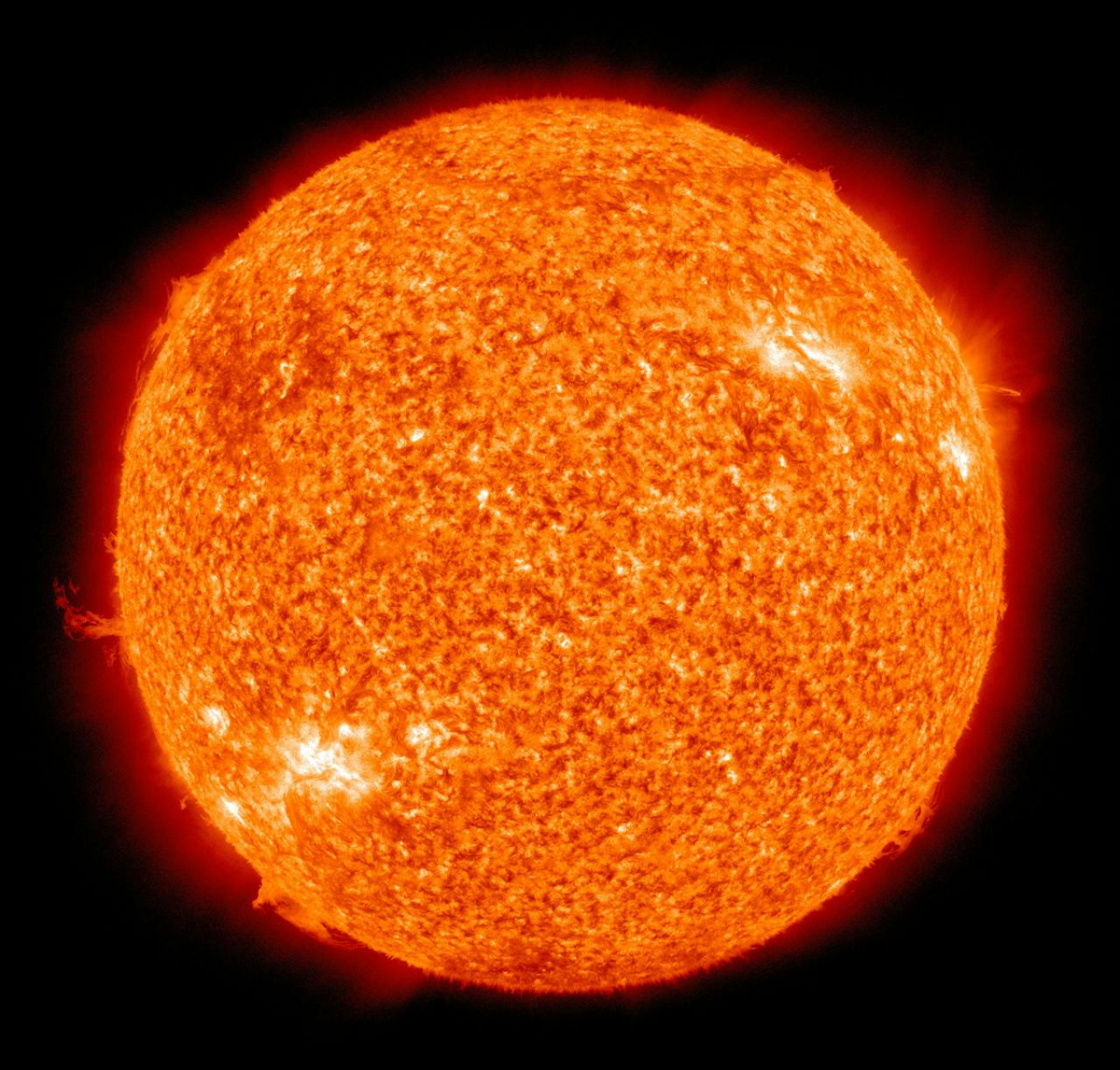Support strong Canadian climate journalism for 2025
The PR pros will tell you not to bother talking about arcane topics like 1.5 degrees — no normies understand the significance, and it just sounds like a little-bitty thing, anyway. They’re probably right. And maybe that explains why we just lived through the first full year above 1.5 C with only perfunctory coverage by the global media.
You, however, are probably well aware that world leaders pledged their efforts to limit temperature increases below 1.5 C, compared to the pre-industrial, pre-fossil fuel era. And, that these small-sounding numbers have enormous impacts. In full-throated defiance of the spin doctors, 1.5 has become the rallying cry from people in the most vulnerable nations — “1.5 to stay alive.”
The month of June looks to have been a grim milestone. The 13th record-setting month in a row for global air temperatures. A 15-month streak of record heat in the oceans. One whole year above 1.5.
The World Meteorological Organization issued a “red alert.”
The director of Europe’s Copernicus Climate Change Service, which crunched the numbers, described “a large and continuing shift in our climate.”
Here’s the situation. Each line in the faded spaghetti shows one of the past 40 years. Red is the last 12 months. The large and continuing shift is unmistakable.
“Even if this specific streak of extremes ends at some point, we are bound to see new records being broken as the climate continues to warm,” said Copernicus’ Carlo Buontempo. “This is inevitable, unless we stop adding greenhouse gases into the atmosphere and the oceans.”
The PR pros are not keen on “greenhouse gases” either and recommend we focus less on the abstract, and more on fossil fuels and their impacts on people.
Climate scientist Andrew Pershing says: "There's nothing really natural about many of these weather and climate events that we're seeing all over the world. These are events that have a very strong human impact on them, from our history of burning coal, oil and natural gas.”
The global increments sound small, but the impacts are searing. Las Vegas hit 120 F (49 C) this past week, breaking its all-time temperature record by 1.7 C. As I write, the City of Lost Wages is broiling for a record fifth consecutive day above 115 F. What happens in Vegas isn’t staying there. In Palm Springs, the thermometer reached 124 F.
Death Valley is flirting with its record for anywhere-in-the-world hottest — living up to its name for ill-advised adventurers, including one motorcyclist. Emergency helicopters can’t airlift the stricken because the air is too thin to fly.
Tourists are coming from all over the world to the desert, hoping to take home the story of being there when the world sets a new record. It’s kind of insane, but we are curious creatures. And if you find yourself wondering what it would feel like, maybe just live it vicariously:
"129 hits different. When you emerge into that kind of heat from an air-conditioned space, you feel its intensity before the door even closes behind you. It sets upon you from above. It is as though a clingy gargoyle made of flame has landed atop your head and neck.” That’s Ross Anderson reporting for The Atlantic. It’s quite the report:
“This gargoyle is a creature of pure desire. It wants only one thing, to bring you into thermal equilibrium with the desert. It goes for your soft spots first, reaching into the corners of your eyes, singeing your nostrils. After a few minutes pass, it tries to pull moisture straight through your skin. You feel its pinches and prickles on your forearms and calves. The breeze only makes things worse, by blasting apart the thin and fragile atmosphere of cooled air that millions of your pores produce by sweating. Your heart hammers faster and faster. Your cognition starts to blur. Only eight minutes in, I looked down at my phone. It had shut down entirely. I chose to view that as an act of solidarity."
Across the Pacific, one city in Japan broke its heat record, not by a measly 1.7C, but an incredible 11 C. This, despite “being in the midst of the rainy season (and) still a month away from the hottest time of the year,” emphasized weather forecaster Sayaka Mori.
Violent riots have erupted over water in drought-stricken Algeria. Temperatures across the Maghreb have been near or above 50 C every day for weeks. At least 1,300 pilgrims died during the annual hajj to Mecca, and researchers estimate the actual death toll to be far higher.
All told, almost five billion people — over 60 per cent of the world’s population — suffered through extreme heat in the last two weeks of June. That includes almost 600 million people in China and over 600 million in India.
And the truth is, no one knows how many people are dying from extreme heat. Much of the world hasn’t digitized death records, attribution varies wildly (if someone dies from a heart attack during a heat wave, what code goes on the form?) and the meta-analyses come up with enormous ranges. To her credit, the chief heat officer for Florida’s Miami-Dade county, commissioned two independent analyses to crosscheck her own government’s tallies. The actual number of heat deaths is at least 10 times the official count, even in Florida’s advanced medical system. And it might be 300 times higher.
We care most about people, but the rest of nature has to survive the same fossil-fuelled impacts. Fire has come early and fierce to the world’s biggest tropical wetland — the legendary Pantanal. Stretching across Brazil, Bolivia and Paraguay it is home to jaguars and many endangered and vulnerable species, including some giants: giant river otters, giant armadillos.
“In one week I have already seen hundreds and hundreds of dead animals, maybe thousands,” says Luka Moraes, a 26-year-old vet volunteering to rescue wildlife. “Reptiles, snakes, frogs – all the animals that cannot run – they do not stand a chance.”
Part of the problem goes back to those itsy-bitsy temperature changes we’re not supposed to focus on. You might remember from high school math that a small shift in a bell curve has dramatic effects at the edges. Or, as the Climate Shift Index puts it: “Small change in average, big change in extremes.”
“This is what 40 billion tons of CO2 a year from burning fossil fuels does for you,” wrote Jeff Goodell this week. Around this time last year, we reviewed his book, The Heat Will Kill You First: Life and death on a scorched planet. Right now, he’s worried about his home state of Texas and the problem of cascading climate impacts. A small change in the average causes a big change in extremes, and those extremes do not always arrive as isolated incidents. Often they come in cascades with compounding impacts.
Right now, hospitals are filling up, the football stadium has been converted into a “transitional facility” for patients who can’t be sent home and over 100 cooling stations have been launched in Houston alone. Long rows of cars are idling at gas stations — a last resort for those with cars but without air conditioning.
With some eerie prescience, Goodell wrote an essay in early June about the heat wave scenario that keeps climate scientists up at night. He sketched a hypothetical scenario imagining that a recent windstorm (a derecho) hit the epicentre of America’s fossil fuel industry during a heat wave instead of the relatively cool period when it happened.
“What if, instead, the electricity goes out for several days during a blistering summer heat wave in a city that depends on air-conditioning?”
Now the heat is on. And, in Houston the compounding crises include the remnants of hurricane Beryl. After unprecedented intensification from tropical storm to Category 5 hurricane, Beryl trashed everything in its path across the Caribbean. By the time it struck Houston on July 8, it had weakened to a Category 1. Beryl killed only seven people on the US Gulf Coast but knocked out power to millions. The state that boasts of being the energy capital of the world can’t get the power back on.
“Over one million will still be without power in Houston *next week*, in the hot swampy heat,” said Goodell this week, updating his thought experiment a mere month after publication.
“And this was a Cat 1 storm.”
At this point, we should insert the obligatory caveats that one year above 1.5 degrees doesn’t mean we’ve crossed some actual threshold. It’s become a totemic decimal number for non-normies, but it’s not a tipping point in nature. It’s always been a human simplification, just like 2 degrees. And it’s not a technical breach of the Paris Agreement to limit overheating — that officially happens when the average temperature exceeds the goal for two or three decades. But the heat will keep rising until we stop burning fossil fuels.
Chris Hatch writes Canada's National Observer's celebrated Sunday newsletter, Zero Carbon. Chris is the former Executive Director of Rainforest Action Network as well as the former executive editor at Canada's National Observer. He is now a columnist at National Observer and writes the acclaimed Sunday newsletter, Zero Carbon.






Comments
Thank-you for the article. "But heat will keep rising until we stop burning fossil fuel."
This may be first time I have read that line in mainstream(ish) media. It's a start.
People are in denial if they think this can be fixed. Nobody seems to understand that this is the way it is and will always be. We putatively fighting for "not worse" but really for the survival of our civilization as we know it.
I have lived in Edmonton for 65 years and I have been watching for weather events that were previously thought not possible. Only 2 so far and they scared me to my core.
1) 40° (2021)
2) Nearly 10 days of 35° in a row. (now, today, I am f'ing miserable)
All at 52 degrees north latitude.
That's what +1.5° will do.
Younger climatologists (ie those who will live further into the new climate) believe +4° awaits us by the end of the century (only 75 years from now).
Leave it in the ground.
...and still the Keeling Curve heads to Venus.